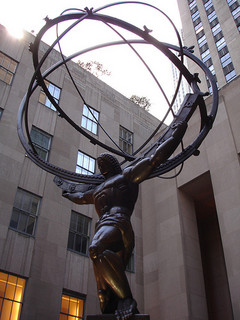Real men read books. This is just the truth. Books get into more detail than any movie ever could. Characters are developed, plots are twisted, and stories are told. Today I want to shed a little light on one niche of literature that is interesting.
By definition a dystopia is the opposite of a utopia. In a dystopia, society has regressed into some form of oppression, hardship, lack of resources, totalitarian government, economic turmoil, or some other overarching condition.
“The Iron Heel” by Jack London is often considered the first modern dystopian novel, but over the last hundred years or so there have been a number of great books written that have encouraged a tremendous amount of discussion. Often these books are the source of very strong feelings and at times huge debate.
I’ll be honest; some of these novels and films are among my favorites. I think the topics covered and theoretical situations are important for us to consider. Dystopian books and movies help us form our values, political stances, and make our decisions in daily life. They let us know that we can have a say in the world around us and hopefully they help us to avoid falling into the same patterns outlined by our favorite dystopian authors.
These novels should also serve as a reminder that things we take for granted now (like “all men being created equal”) have not always been so. If you look back in history you see shades of some of these dystopias. Throughout the ages and throughout the world there have been totalitarian regimes, social castes, war, starvation, viagra from canada, slavery, and many other atrocious occurrences. A great deal of the world is now fortunate enough to be able to work their way from the bottom to the top or be able to fall from the top. We are largely treated equally and allowed many freedoms. We must remember this hasn’t always been so and it is our duty to keep it this way!
Some of my favorite dystopian novels are:
* Caution – there are no “real” spoilers here, but I do discuss the overall plot
Atlas Shrugged by Ayn Rand
Cashing in at over 1,000 pages this is Ayn Rand’s magnum opus. What happens when the thought leaders of a society disappears? What happens when the government continues to pass more and more restrictive legislation? Who is John Galt? This story follows the protagonist, Dagny Taggert as the government and society seem to be collapsing around her. I love how this novel encourages independent thought.
Brave New World by Aldous Huxley
A snapshot of society as portrayed by Aldous Huxley looks like this: brainwashing, over medicated, loose morals, social classes, and government control.
1984 by George Orwell
George Orwell’s novel depicts a world with strong government control, constant war, censorship and many of your other typical traits of dystopian novels. This hove
The Giver by Lois Lowry
This was my personal first experience with a dystopian novel. This novel appears to have a society, which seems closer to a Utopia than anything else. Jobs are assigned based on their skills and the main character gets the job of receiving all the members of the society. As everything progresses you realize the society is more dystopian than everything else. As I said, this one holds a special place in my heart because it was my one of my few favorite books of grade school.
Fahrenheit 451 by Ray Bradbury
The temperature at which books burn. Mass scale censorship. Government control. The evil of television!
The Road by Cormac McCarthy
This novel takes it a bit past dystopian and more towards post-apocalyptic. This follows a father and his son trying to survive after some unexplained disaster. Not for the faint of heart, this Pulitzer Prize winning novel is graphic and grim.

